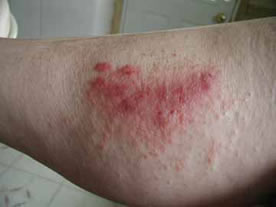Michael Fumento
Factual · Powerful · Original · Iconoclastic
VA Stacks the Deck on GWS Panel
October 01, 2004 · Michael Fumento · Scripps Howard News Service · MilitaryCountless studies in the U.S. and U.K, along with myriad government-appointed panels that have reviewed them, have found that so-called "Gulf War Syndrome" is nothing more than any illness any Gulf vet (or spouse or child of one) has or thinks he has. Since most studies are federally-funded, veterans advocacy groups and anti-war activists have insisted there’s been a government conspiracy. Finally they’re right.
The latest Research Advisory Committee on Gulf War Illness, stacked with GWS activists by Department of Veterans Affairs Secretary Anthony Principi, has proclaimed GWS real. It thus not only contradicts a previous Advisory Committee’s findings but that of three different Institute of Medicine (IOM) panels – all appointed by the VA.
This required ignoring that rates of both illness and death are lower among Gulf vets are no higher than those of comparable non-deployed vets – and far lower than those of comparable civilians. They also had to disregard the utter lack of commonality in symptoms.
Activists have attributed at least 123 symptoms to GWS including aching muscles, aching joints, abdominal pain, bruising, shaking, vomiting, fevers, irritability, fatigue, weight loss, weight gain, heartburn, bad breath, hair loss, graying hair, rashes, sore throat, itching, sore gums, constipation, sneezing, nasal congestion, leg cramps, hemorrhoids, hypertension, insomnia, and headaches.
 Note the distinctive difference between this rash on a non-vet . . .
Note the distinctive difference between this rash on a non-vet . . .
Anybody who hasn’t had most of the above symptoms is probably an android. But when a non-vet gets a cough, it’s called "a cough." If a Gulf vet gets one, it’s GWS.
Among the causes that have been offered and rejected are: the insect repellant DEET, depleted uranium shells that are less radioactive than uranium rock, flies, oil well fires, and even exposure to Scud missile fuel. But each has disappeared upon close examination.
As its bogeyman, the latest Advisory Committee claimed a "Growing body of evidence indicates an important component of [GWS] is neurological [and] supports a probable link with neurotoxic exposures during the war." It primarily focused on nerve gas exposure. After hostilities ended engineers did blow up an Iraqi ammo dump containing some sarin nerve gas munitions. In a sop to activists, the Pentagon declared that 100,000 soldiers were "exposed" to nerve agent because at some point they were literally miles beneath an enormous plume of smoke and dust with a bit of sarin mixed in.
But the Pentagon also observed that exposure levels were too low for the sarin to have caused any illnesses, that the amount required to incapacitate somebody was 2,700 times what the average soldier received. A lethal dose would be 7,700 times higher. That’s not "exposure" in any medical sense of the term. Naturally, studies have found no increased illness among vets in this 100,000 group.
 . . . and this rash on a Gulf vet.
. . . and this rash on a Gulf vet.
The Advisory Committee insists it can reject previous findings because of new evidence. Yet the IOM issued its latest findings at almost the same time, concluding "not enough evidence to draw conclusions as to whether long-term health effects are associated with low-dose exposures" of sarin – much less miniscule-dose exposure.
The real explanation for the VA panel’s bizarre and unscientific conclusion is that, of the ten committee members, two work for activist groups and one was a Gulf vet who claims a mystery illness struck his unit during Desert Storm. Of the remaining seven, several had publicly shown a pro-GWS bias before Principi picked them.
Principi picked Lea Steele of Kansas State University’s College of Human Ecology to be the panel’s science director a year after she endorsed a book supporting the GWS thesis and the same month she expressed her prejudices in congressional testimony.
Another member, Dr. Robert Haley of the University of Texas Southwestern Medical Center, is the most prominent GWS activist physician in the country. For a decade he’s been bankrolled by GWS advocate H. Ross Perot. Dr. Harold C. Sox , editor of the prestigious Annals of Internal Medicine and the head of the first IOM committee to investigate GWS, told me "At the least, this indicates the possibility of a conflict of interest."
What’s truly sad about all this is that even as the VA Panel gives sick Gulf vets false hope that their particular illnesses can be cured in some way differently from the same illness in other people, it gives healthy vets false fears that they’ll carry throughout their lives. Don’t our heroes deserve better?
